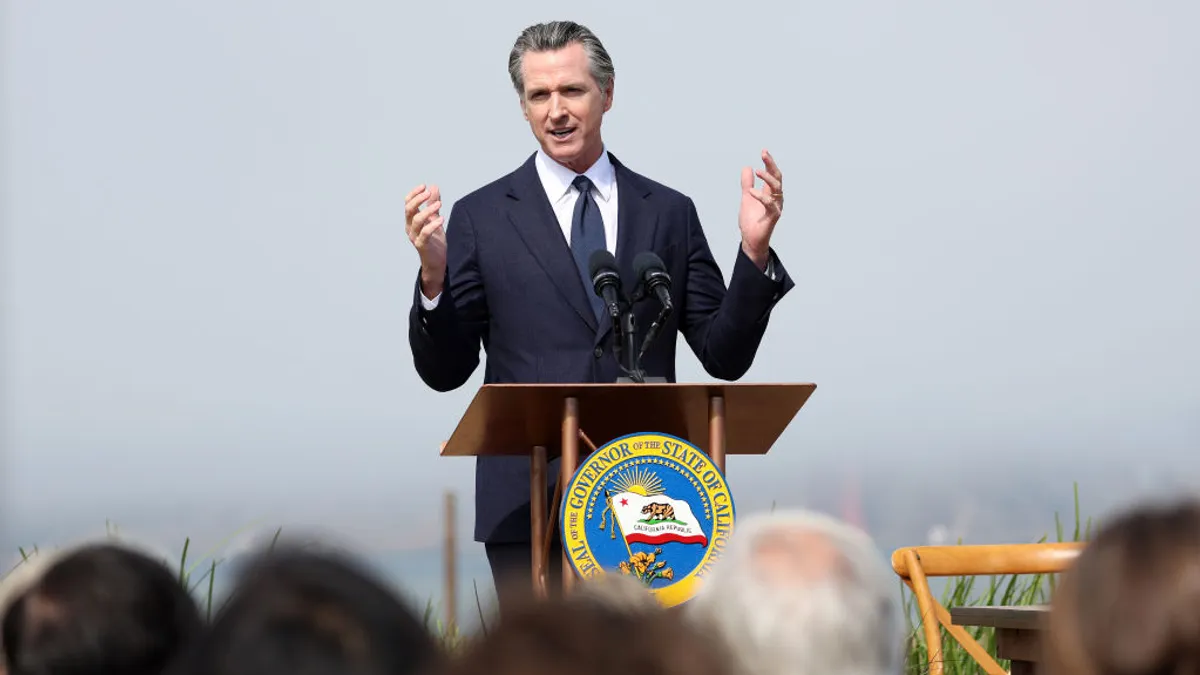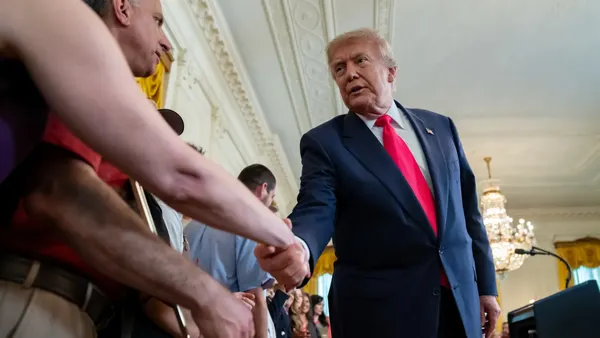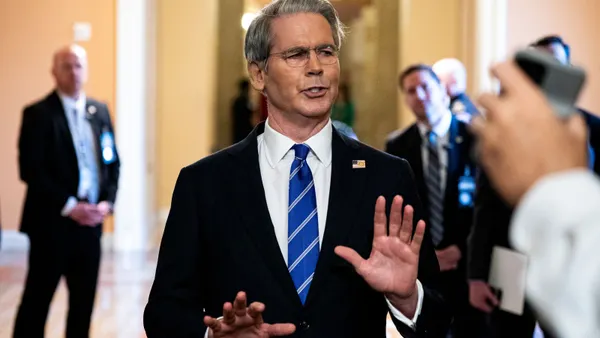Dive Brief:
- California Gov. Gavin Newsom vetoed Assembly Bill 316, a proposed law that would have restricted driverless operations of heavy duty trucks, arguing last week the state already has the tools to regulate AVs. Legislators wanted more oversight through a bill, including the ability to sign off on allowing such AVs.
- “Assembly Bill 316 is unnecessary for the regulation and oversight of heavy-duty autonomous vehicle technology in California, as existing law provides sufficient authority to create the appropriate regulatory framework,” Newsom said in a veto statement on Friday.
- The bill sought to require a safety operator onboard for vehicles weighing 10,0001 pounds and gave legislators oversight of state Department of Motor Vehicles efforts to allow driverless heavy duty trucks. It would also have required companies to issue crash reports to the state’s DMV.
Dive Insight:
Legislators voted to approve the bill with more than two-thirds’ vote in each chamber — the threshold needed to override a veto — earlier this year. But overriding a veto is rare in California.
The 80-member Assembly previously approved the bill 69-4 in May, and the 40-member Senate approved the measure 36-2 in September.
Heavy duty trucks are not yet permitted to operate without a driver in California, but the possibility of change has sparked tensions between autonomous tech companies and the International Brotherhood of Teamsters. The union supported the legislation.
In his veto statement, Newsom addressed safety and jobs issues that sides have debated over the use of the technology, saying his administration remains committed to mitigating any potential impacts on jobs.
“Considering the longstanding commitment of my Administration to addressing the present and future challenges for work and workers in California, and the existing regulatory framework that presently and sufficiently governs this particular technology, this bill is not needed at this time,” Newsom said in the letter.
The governor also noted that state agencies provide regulatory oversight already, and he said the Department of Motor Vehicles will develop rules around the technology in a transparent, public process.
The governor’s move drew support from the Autonomous Vehicle Industry Association, which represents AV firms such as Aurora Innovation, Kodiak Robotics, TuSimple Holdings, Volvo Autonomous Solutions and Waabi.
“We look forward to continuing to work with the California DMV, California Highway Patrol, Labor and Workforce Development Agency and other state regulators that are evaluating the future of autonomous trucking technology in the state,” Jeff Farrah, executive director for AVIA, said in a statement.
The governor also said he remains open to working with the bill’s author, sponsors and other stakeholders on the “right approach to safely test and deploy this evolving technology.”













